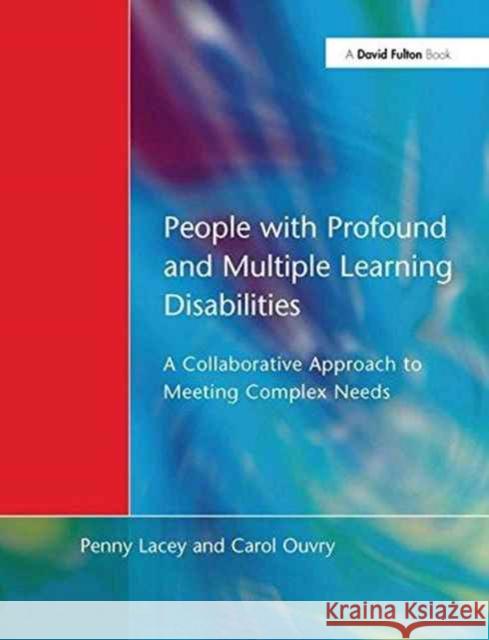People with Profound & Multiple Learning Disabilities: A Collaborative Approach to Meeting » książka
topmenu
People with Profound & Multiple Learning Disabilities: A Collaborative Approach to Meeting
ISBN-13: 9781138151383 / Angielski / Twarda / 2016 / 251 str.
People with Profound & Multiple Learning Disabilities: A Collaborative Approach to Meeting
ISBN-13: 9781138151383 / Angielski / Twarda / 2016 / 251 str.
cena 636,71
(netto: 606,39 VAT: 5%)
Najniższa cena z 30 dni: 579,30
(netto: 606,39 VAT: 5%)
Najniższa cena z 30 dni: 579,30
Termin realizacji zamówienia:
ok. 22 dni roboczych.
ok. 22 dni roboczych.
Darmowa dostawa!
First Published in 1999. Routledge is an imprint of Taylor & Francis, an informa company.











